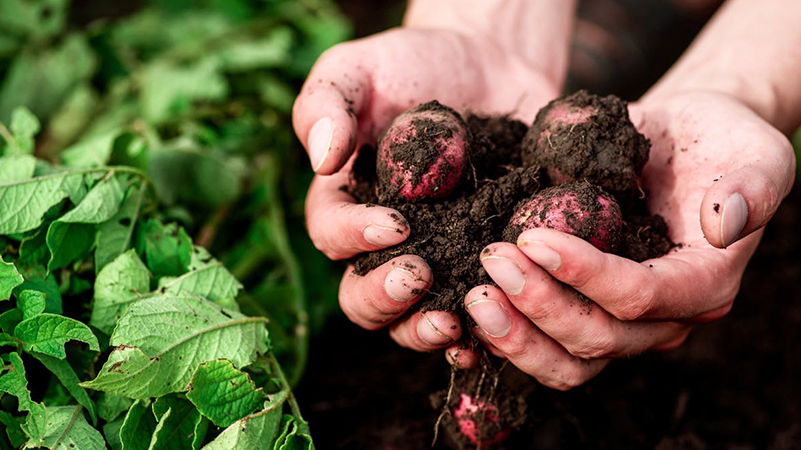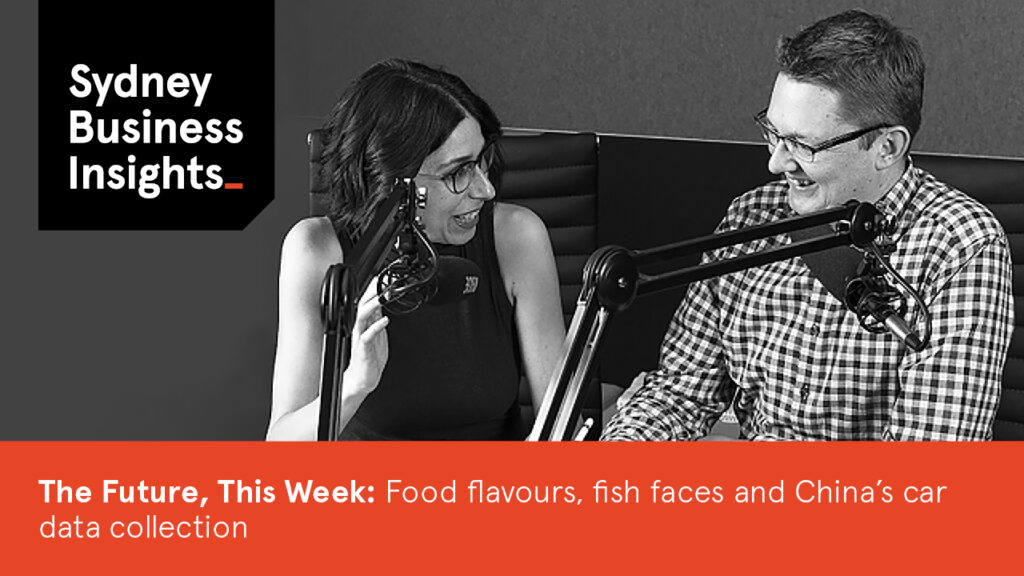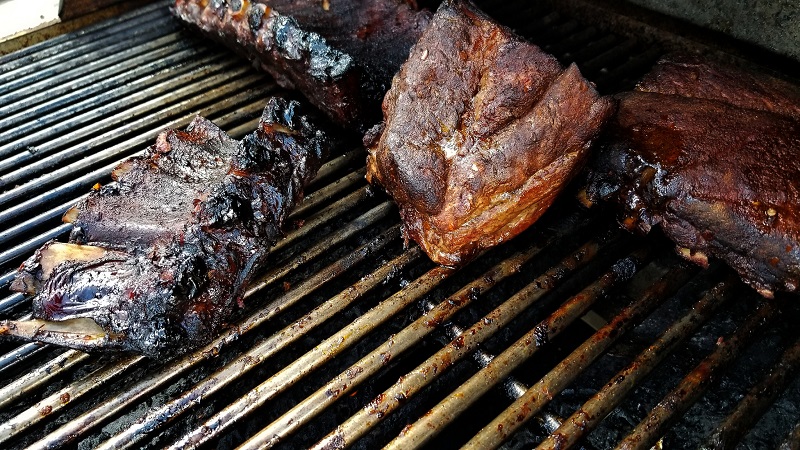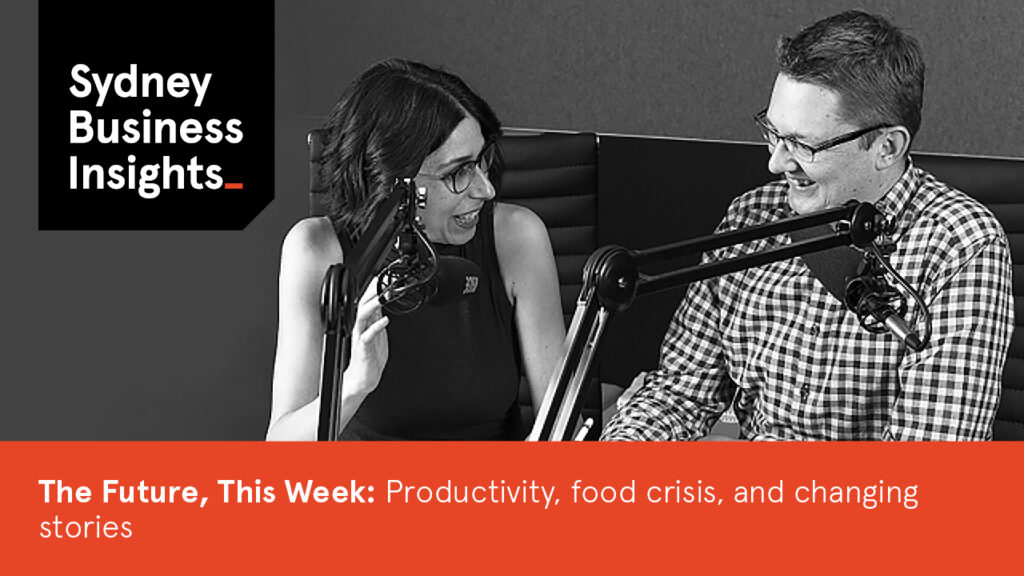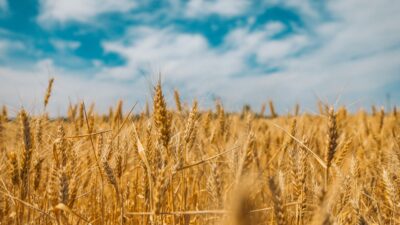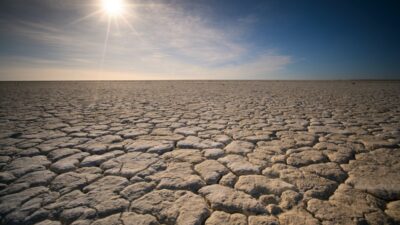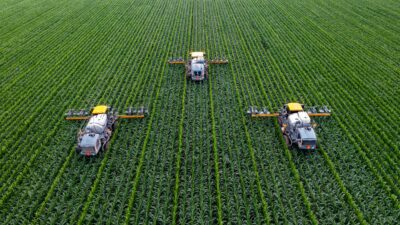Sydney Business Insights

The future of food
In 2018 we looked at the future of food from the soil it will grow in to the spectre of a global shortage in just 10 years. So much food for thought: Will ‘clean food’ save the environment, our souls or can we just leave it to an AI to prime our taste buds?
Soil is the only non-renewable resource in the food chain and it’s doubtful this thin earthly membrane can sustain the planets growing population. Dr Alex McBratney transports us to a time where indoor highly engineered growing spaces could reduce soil use by 99% – with the possibility outdoor land could be returned to native vegetation.
Taste is the most nebulous of our senses and the launch of an app – the Gastrograph by Analytical Flavour Systems that claims to use an AI to measure flavour better than people, caused Sandra and Kai serious heart burn. Listen in as they deconstructed the pork pies behind the inventor’s claims.
A glass of microbial fermentation anyone? In this episode of The Future This Week Sandra and Kai wrestled with the concept of milk: Is the output of genetically modified yeast containing the same proteins found in milk – actually milk? Will ‘Clean’ agriculture – such as meat grown in a lab from the cells of a real beast, really help save our environment?
The WeWork company declared meat off the menu at all corporate events for environmental reasons and to save the lives of animals. What are the limits to corporate rules even when they are imposed for ethical purposes? Should companies require employees to eat better, stop unhealthy practices or advocate for social change? When are private values part of your social corporate responsibility?
The Global Food Shortage is just 10 years away
Former commodities trader Sara Menker has been crunching the numbers and she calculates the current estimate of a global food shortage around 2050 is wrong: The time line is just ten years away. Previous calculations have been based on food tonnage, but the true measure is calories – that is a foods nutritional value. With the explosion of the middle class in China and India – bringing with it a catastrophic rise in the consumption of red meat, Sandra and Kai discuss the geopolitical implications.
Sydney Business Insights is a University of Sydney Business School initiative aiming to provide the business community and public, including our students, alumni and partners with a deeper understanding of major issues and trends around the future of business.
Share
We believe in open and honest access to knowledge.
We use a Creative Commons Attribution NoDerivatives licence for our articles and podcasts, so you can republish them for free, online or in print.
